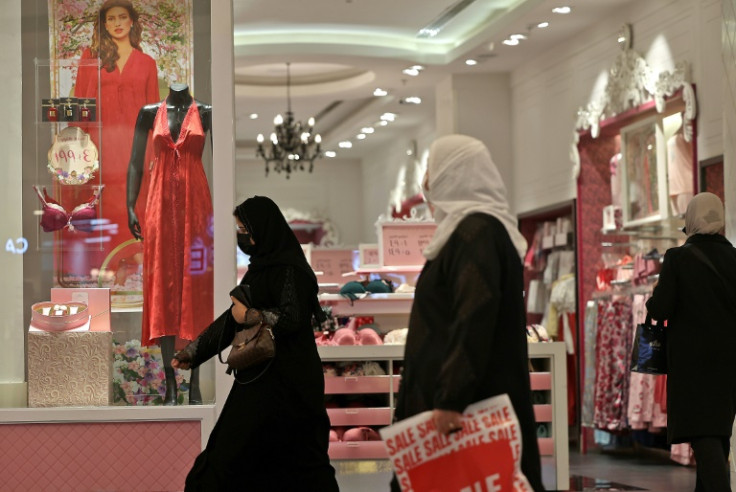Study reveals 81% UK online shoppers 'are concerned about fashion's environmental impact'
Makip exposes that the majority of UK online shoppers are worried about the environmental consequences of ordering multiple clothing items in various sizes.

For many fashion enthusiasts, the temptation of ordering multiple clothing items in various sizes has become a frequent practice. However, behind this ease comes a developing problem that cannot be overlooked: the substantial environmental impact of such shopping behaviours.
A new study commissioned by sizing technology expert, Makip, has revealed that a significant 81 per cent of UK online buyers are concerned about the environmental impact of ordering multiple clothing items in various sizes to try on at home.
Despite such a large majority being concerned about the environmental impact of their shopping habits, the study also brought to light a troubling finding that 42 per cent of UK online buyers would still make their purchase even if retailers highlighted the environmental impact of ordering multiple items knowing that they will be returned, ultimately causing considerable harm to the environment.
Makip's findings have raised a red flag for e-commerce fashion sellers, shedding light on a growing concern. Given that in 2022, about 23 million items of returned fashion were sent to landfill or burnt in the UK, resulting in 750,000 tonnes of CO2 emissions and accounting for around 75 per cent of the approximately three per cent of all returns that cannot be resold, this issue is not going away.
Shingo Tsukamoto, President of Makip, showed concern over the apparent conflict among UK consumers regarding this alarming trend. He said it poses a significant challenge for fashion designers and retailers alike, who are attempting to reconcile environmental and ethical responsibilities with client demand and satisfaction.
According to the report, returns have long been a persistent problem for retailers, and in 2022, incorrect sizing or fit was identified as the leading cause of returns. Processing and transporting online returns cost retailers an average of £20 per package, not to mention the environmental burden they impose.
Tsukamoto pointed out that e-commerce fashion retailers now possess enough evidence to act decisively. He urged them to turn to technology as a solution to address the escalating volume of returns, which not only damages the planet and society but also significantly impacts retailers' profits.
Tsukamoto believes that it is clear that UK consumers are caught between sustainability and convenience. According to the President of Makip, retailers have a responsibility to help solve the fashion industry's sizing problem, which they helped to create.
Additionally, he stressed an efficient approach to tackle the problem, which is to provide consumers with relevant sizing information and to use accurate online sizing technologies. He also said retailers may potentially be able to recoup lost profits while also benefiting the environment.
According to the report, both brands and retailers are under increasing pressure to deliver an optimal consumer experience while also demonstrating their commitment to sustainability. Consumers expect the reassurance that their latest fashion purchases will fit as expected while causing the least amount of environmental impact.
As a result of these findings, Tsukamoto urged retailers to step up, saying it's time to be a part of the solution.
These fresh insights about UK shoppers' faith in online sizing technology are the result of an independent research effort that polled 2,000 UK-based online shoppers. Participants had to have utilised online sizing technologies and purchased at least 11 pieces of apparel online in the previous 12 months.
© Copyright IBTimes 2025. All rights reserved.






















